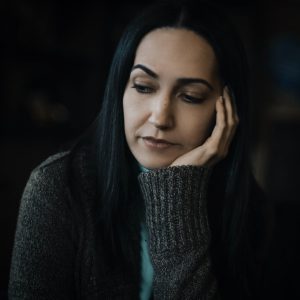It is certain that all women go through some transformations in their lives. Menstruation and climacteric are two of them. There are also others, like pregnancy, which may not happen to all, but can still be considered a major transformation and part of a woman’s life. But what about when they occur before the expected time? Today, we’re going to talk about early menopause, what its main causes are, and whether this greatly impacts a woman’s life. Keep reading to find out all the details now!
What is Early Menopause?
Before we delve into the main topic, it’s important to give a quick summary of what menopause is and the effects it has on a woman’s body. Menopause is, without a doubt, the most well-known stage of the climacteric period, when a woman’s body prepares to stop being fertile. During menopause, the ovaries stop working and the woman no longer menstruates. This leads to a significant hormonal decrease in the woman’s body, which causes various symptoms such as decreased libido, hair loss, hot flashes, among others. When this cycle we mentioned happens in a woman before the age of 40, it is considered early menopause or premature menopause. It’s not a hormonal disorder as many believe, but rather the ovaries failing to function before the expected time. One of its main characteristics is a decrease in developed eggs and, as a result, fewer periods. This also leads to hormonal changes.
What Causes Early Menopause?
Early menopause can happen to a woman for many reasons, making it virtually impossible to point to just one thing common to all cases. However, some factors can help explain why it occurs. Some studies, for example, indicate a connection with the woman’s mother’s age as one possible cause. Although this is not definitive, it is certain that family history helps explain early menopause. If a woman’s mother and sisters had it, it’s very likely she will too. In addition, there are some external factors that can contribute to early menopause. Women who have undergone cancer treatments, for example, can suffer from this because chemotherapy and radiotherapy can, as a side effect, cause the early failure of the ovaries. Other less common causes include some X chromosome abnormalities, such as Fragile X Syndrome and Turner Syndrome, which usually cause the eggs to die at an even younger age. 
How Is the Diagnosis Made?
For a doctor to accurately diagnose early menopause, tests are needed to show the decrease in hormone levels in a woman. However, these tests are usually accompanied by evidence that the woman is experiencing several symptoms such as:
- Vaginal dryness;
- Reduced libido;
- Frequent mood changes;
- Urinary incontinence;
- Fatigue;
- Night sweats and hot flashes.
The tests along with these symptoms allow a doctor to give the correct diagnosis and suggest possible treatment options.
Treatment for Early Menopause
The treatment for early menopause aims to relieve symptoms so that they do not interfere with a woman’s life, as well as help prevent other diseases from developing, since lower hormone levels increase this risk. This condition is treated with Hormone Replacement Therapy (HRT), which helps prevent diseases such as osteoporosis as well as heart disease. It’s worth mentioning that this type of treatment does not reverse ovarian failure.
Is it Possible to Get Pregnant Even with Early Menopause?
One of the biggest fears for women going through early menopause is whether it’s possible to get pregnant during this process. The answer is yes, it is possible to get pregnant. However, it’s important to understand the circumstances in which this can happen. The chance for a woman with early menopause to become pregnant is less than 10%, which is quite low. However, it is possible to receive a donated egg from another woman, through a process called egg donation, so that it can be fertilized in vitro. The chance of success in these cases is up to 60%—not particularly high, but much greater than what a woman would have without this process. Certain things in life are inevitable, like the changes every woman must face. It’s important to learn to accept them even when they come at unexpected times, such as with early menopause. It’s also important to know what treatments are available and how this may affect your life now and in the future. It is possible to live well, be healthy and very happy after this phase, which for many can be turbulent. And following the advice we gave today can be a big help. Use vitamins that support you at this time, such as FamiPlena. See also: Symptoms of Menopause











